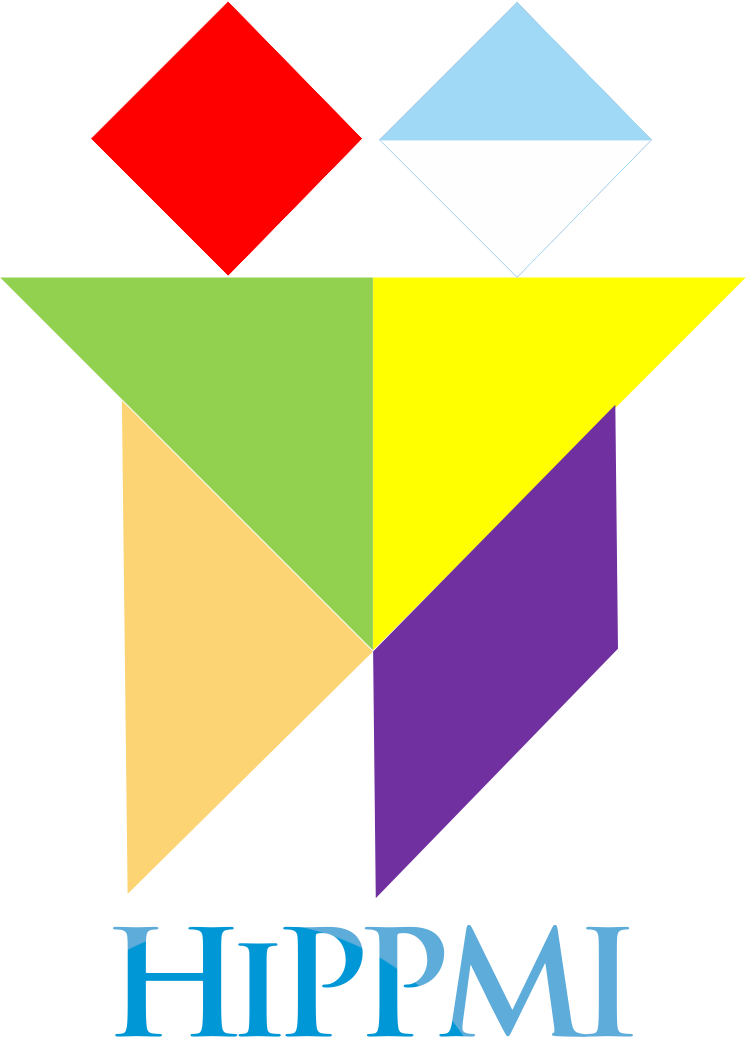PEMBELAJARAN KOOPERATIF TIPE STAD BERBASIS ETNOMATEMATIKA SEBAGAI UPAYA MENINGKATKAN KEMAMPUAN PEMAHAMAN DAN KOMUNIKASI MATEMATIS MAHASISWA PGSD
Abstract
Abstrak: Kemampuan pemahaman dan komunikasi matematis mahasiswa PGSD tergolong rendah. Di antaranya disebabkan oleh kurangnya pemanfaatan konteks budaya dalam pembelajaran. Potensi budaya menjadi menarik untuk dijadikan sebagai masalah kontekstual dalam perkuliahan matematika karena budaya lebih dikenal, dilakukan dan terkait dengan kehidupan sehari-hari mahasiswa. Tujuan penelitian ini adalah untuk meningkatkan kemampuan pemahaman matematis dan kemampuan komunikasi matematis mahasiswa PGSD melalui penerapan pembelajaran kooperatif tipe STAD berbasis etnomatematisa (PKSBE). Penelitian ini melibatkan mahasiswa PGSD STKIP St. Paulus Ruteng semester II tahun akademik 2011/2012 yang terdiri dari dua kelas, satu kelas ekperimen dan satu kelas kontrol. Pemilihan kelas tersebut dilakukan secara acak kelas dari 10 kelas yang ada. Mahasiswa kelas eksperimen mendapat pendekatan PKSBE dan mahasiswa kelas kontrol mendapat pembelajaran kooperatif tipe STAD (PKS). Instrumen penelitian yang digunakan adalah wawancara tidak tertruktur, pretes dan postes, lembar observasi, dan angket respon mahasiswa. Data yang diperoleh dianalisis secara kualitatif, uji-t dan uji Mann-Whitney U. Berdasarkan hasil penelitian dapat disimpulkan bahwa secara keseluruhan, kemampuan pemahaman dan komunikasi matematis mahasiswa yang mendapat pembelajaran menggunakan PKSBE memperoleh peningkatan yang secara signifikan lebih tinggi daripada mahasiswa yang menggunakan PKS. Peningkatan tersebut masuk dalam kategori tinggi. Hasil analisis terhadap data observasi dan respon mahasiswa menunjukkan bahwa PKSBE dapat meningkatkan aktivitas belajar mahasiswa dan menumbuhkan sikap positif mereka terhadap mata kuliah Konsep Dasar Matematisa dan terhadap dosen.
Abstract: The conceptual understanding and mathematics communication of the primary teacher training students can be classified as in the low level. This phenomenon is highly affected by insufficient utility of culture perspective in teaching and learning process; however, cultural value becomes interesting issues in mathematics instruction because culture has been well-known, practiced, and been strongly associated to the students’ daily life. The aim of this study is to develop students’ understanding of competence and mathematical communication through the implementation of cooperative learning of STAD techniques on the ethnomathematic basis.There were two classes of primary teacher training college students at St. Paul college of education at second semester in the academic year 2011/2012 as the sample. One class was as the experiment group and another one class was as the control group using proportional random sampling from 10 classes. The experiment group was taught by using cooperative learning STAD techniques on the ethnomathematic basis, whereas control group was taught by using cooperative learning STAD techniques without ethnomathematic basis. Instruments used in this study were unstructured interview, test, observation sheet, and questionnaire. Qualitative data analysis were t-test and Mann-Whitney U test. Based on research result can be concluded that almost the students’ understanding of mathematics and mathematical communication of the experiment group was significantly higher than those of the control group. This significant development categorized as high level. Data analysis of observation sheet and questionnaire indicated that cooperative learning STAD technique on ethnomathemtic basis could develop students’ mathematics learning activities and their positive attitudes toward the course of basic concept of mathematics and toward their lecturer.
Keywords
Full Text:
PDFReferences
Aisyah, N. (2008). Pengembangan Pembelajaran Matematika SD. Dirjen Dikti Depertemen Pendidikan Nasional.
Asma. N. (2006). Model Pembelajaran Kooperatif, Departemen Pendidikan Nasional Dirjen Pendidikan Tinggi Direktorat Ketenagaan.
Barker, W. (2004). A summary of the report by the Committee on the Undergraduate Program in Mathematics of The Mathematical Association of America, Published and Distributed by The Mathematical Association of America.
Brenner, M. E. (1998). Development of Mathematical Communication in Problem Solving Groups by Language Minority Students. Bilingual Research Journal, 22:2, 3, & 4 Spring, Summer, & Fall 1998.
Clark, K. K. (2005). Strategies for Building Mathematical Communication in the Middle School Classroom: Modeled in Professional Development, Implemented in the Classroom. CIME (Current Issues in Middle Level Education) (2005 11(2), 1-12.
D’Ambrosio, U. (2004). Ethnomathematics and Mathematics Education: Proceedings of the 10th International Congress of Mathematics Education Copenhagen, Dipartimento di Matematica Universitàs di Pisa Italia.
Depdiknas. (2006). Model Kurikulum Tingkat Satuan Pendidikan dan Model silabus Mata Pelajaran SMP/MTs. Jakarta: BP. Cipta Jaya.
Isrok. (2009) Upaya untuk Meningkatkan Kemampuan Komunikasi Matematik Siswa melalui Pembelajaran Matematika dengan Strategi Kooperatif Tipe STAD JURNAL/PENDIDIKAN_DASAR/Nomor_12-Oktober_2009 Diakses pada 2 Oktober 2011. Tersedia: http://file.upi.edu/Direktori/.
Kadir. (2010). Penerapan Pembelajaran Kontekstual Berbasis Potensi Pesisir Sebagai Upaya Peningkatan Kemampuan Pemecahan Masalah Matematik, Komunikasi Matematik, dan Keterampilan Sosial Siswa SMP, Disertasi pada SPs UPI Bandung: Tidak diterbitkan.
Meltzer, D. E. (2002). The Relationship Between Mathematics Preparation and Conceptual Learning Gains in Physics: A Possible “Hidden Variable” in Diagnostic Pretest Scores. Department of Physics and Astronomy, Iowa State University, Ames, Iowa 50011.
NCTM. (2000). Principles and Standards for School Mathematics, Reston, Virginia: NCTM.
Pannen. (2005). Pembelajaran Berbasis Budaya: Model Inovasi Pembelajaran dan Implementasi Kurikulum Berbasis Kompetensi, Jurnal Pendidikan, Vol. 6, No. 2, September 2005, 83-98.
PGSD. (2008). Evaluasi Semester Program Studi Pendidikan Guru Sekolah Dasar Jenjang Strata I STKIP St. Paulus Ruteng, Laporan: Tidak diterbitkan.
Qohar, A. (2010). Mengembangkan Kemampuan Pemahaman, Koneksi dan Komunikasi Matematis Serta Kemandirian Belajar Matematika Siswa SMP Melalui Reciprocal Teaching, Disertasi pada SPs UPI Bandung: Tidak diterbitkan.
Ruseffendi, E. T. (1988). Pengantar Kepada Membantu Guru Mengembangkan Kompetensing dalam Pengajaran Matematika untuk Meningkatkan CBSA. Bandung: Tarsito.
Skemp, R. R. (1976) Relational Understanding and Instrumental Understanding. Mathematics Teaching, 77, 20–26.
Slavin, R. E. (2009). Cooperative Learning, Teori, Riset dan Praktik, Bandung: Penerbit Nusa Media Ujung Berungberun.
Sugiyono. (2012). Metode Penelitian Kombinasi (Mixed Methods), Bandung: Penerbit Alfaberta.
Supriadi. (2009). Analisis Proses Berpikir Matematika antara Dosen, Mahasiswa (Guru SD & Non Guru SD) PGSD dan Siswa SD dalam Pembelajaran Matematika di Propinsi Banten. Bandung: Prosiding Seminar Nasional Matematika dan Pendidikan Matematika, 19 Desember 2009 Jurusan Pendidikan Matematika FPMIPA UPI.
Tiurlina. (2006). Pemahaman Konsep Dasar Matematika SD Pada Mahasiswa D2 PGSD UPI Kampus Serang, Tersedia: http://jurnal.upi.edu/ptikilkom/view/82/ pemahaman-konsep-dasar-matematika-sd-padamahasiswa-d2-pgsd-upi-kampus-serang.html. Diakses pada 30 November 2011.
Trimurtini. (2009). Implementasi Model Cooperative learning Berbantuan Computer dalam Pembelajaran Pendidikan Matematika Pada mahasiswa PGSD, JURNAL KEPENDIDIKAN Volume 39, Nomor 2, November 2009, hal. 119-128.
Zhang, W., & Z. Q. (2010). Ethnomathematics and Its Integration within the Mathematics Curriculum. Journal of Mathematics Education: June 2010, Vol. 3, No. 1, pp.151-157.
DOI: https://doi.org/10.17509/sigmadidaktika.v1i1.45237
Refbacks
- There are currently no refbacks.
e-ISSN: 2987-3894
p-ISSN: 2252-7435
This work is licensed under a Creative Commons Attribution-ShareAlike 4.0 International License.









